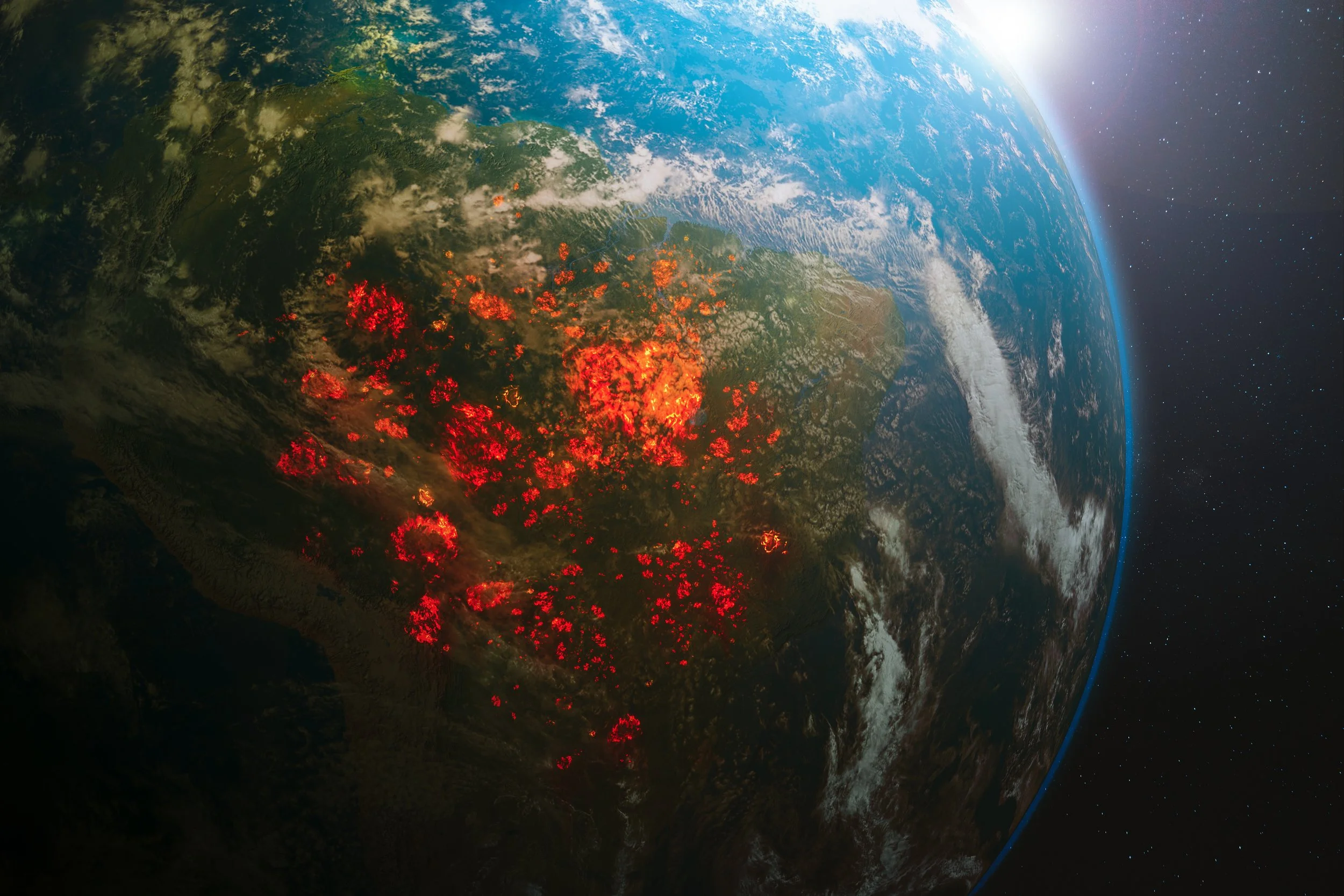The Importance of the Right’s of Nature
The lungs of our planet are on fire.
2024 marked the worst year for fires in the Amazon Rainforest, since 2005[1]. The total burned area in Brazil alone amounted to 46 million acres, which is larger than the entire state of California[2].
Satellite images showed vast plumes of smoke rising over Brazil and Peru, blocking out the sun and turning daylight into an eerie darkness. The world watched in horror as flames consumed millions of acres, destroying ancient ecosystems and displacing Indigenous communities who had lived in balance with the land for thousands of years.
While media outlets called it a natural disaster, due to climate change and El Nino, the truth is far more unsettling. This is a man-made crisis, fuelled by an economic system that prioritises profit over life itself.
The Amazon is burning because of the global demand for beef, soy, and timber and one of the most biodiverse regions on Earth is now a battleground for Indigenous defenders fighting to protect what remains.
One of those defenders, Nemonte Nenquimo, a Waorani leader from Ecuador, put it plainly: ‘There is a disconnect from the Earth that creates a disconnect spiritually and in terms of wellbeing. Those are the main things I feel have been lost in life in the cities. The Indigenous communities and my people reconnect day in, day out, by collecting water, food, fish… That’s a source of joy and spiritual connection to the land. It’s missing in Western civilisation.[3]’
And yet, the economic and political systems that dominate our Western world are still pushing a different narrative. It is a direct result of the long-standing dominance of anthropocentrism, a worldview that places human interests above all else. Its central belief is that relentless economic growth is the key to happiness and prosperity, and as the dominant species we have every right to extract the Earth’s resources. Nature is viewed as nothing more than a commodity, and something to be bought, sold and exploited to fuel an ever-expanding market.
What if there was another way?
For generations, Indigenous communities have warned us of the consequences of our greed and disconnection from the natural world. The world is splitting between those who follow this destructive patriarchal, theocentric, anthropomorphic worldview, and those that are awakening to a different worldview where humanity exists within a vast, interconnected web of life.
As our political, social, and economic systems become increasingly divisive, authoritarian, and destructive, more people are recognising that the current trajectory, driven by corporate greed, environmental degradation, and social inequality, is unsustainable.
In response, a growing movement is emerging, one that seeks to reconnect with ancestral wisdom, preserve our soil, grow food sustainably, farm regeneratively, restore biodiversity, protect water sources, reduce waste, embrace circular economies, support local economies, and rebuild resilient, interdependent communities.
This shift is more than just an ecological necessity, it is a moral and ethical awakening, a profound transformation in consciousness from division and separation, to unity and interconnectedness.
We need to prioritise ecological and social well-being over economic growth, and lay the foundation for a more equitable, sustainable, and harmonious future with regenerative practices, and cooperation over competition. The fight for a liveable world is no longer optional, it is a collective responsibility that requires urgent action and a radical reimagining of how we coexist with each other and the planet. The future is not yet written, and our choices today will determine whether we merely survive or truly thrive in the years to come.
As we stand at the precipice of great change, this vision has never been more urgent. The practices and wisdom of Indigenous communities offer us a roadmap, a blueprint for creating an economy that works with Nature, rather than against it. We need to rewrite the story of humanity and align our economic systems with the laws of Nature, ensuring that future generations inherit a world not destroyed by greed, but abundant and healthy with life, diversity, and interconnectedness.
[1] https://www.rainforest-arcc.org/blog/the-amazon-is-on-fire-heres-why
[2] https://rainforestfoundation.org/engage/brazil-amazon-fires/
[3] https://geographical.co.uk/culture/nemonte-nenquimo-im-fighting-for-the-land-i-love


